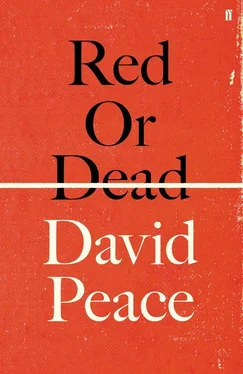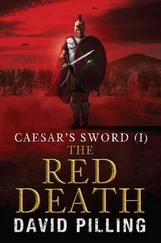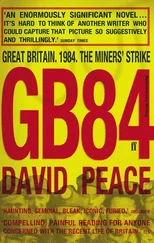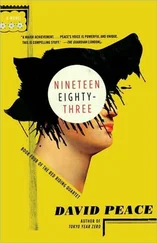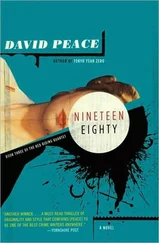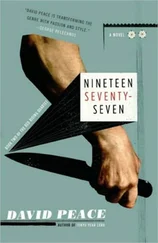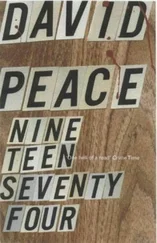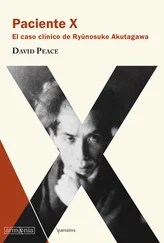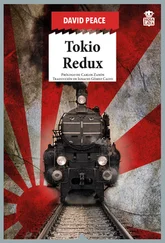No, no, said Bill Shankly. It’s yours, son. Please take it. I cannot take it, son. I just cannot …
But Kevin Keegan looked at Bill Shankly. And Kevin Keegan whispered, Please. Please take it, Boss. You have given me so much. So very, very much, Boss. Please take this from me. Please, Boss …
At the presentation, on the stage. Bill Shankly stared down at the Sword of Honour in his hands. And Bill Shankly swallowed –
Then when I die, you can have it back …
On the train. The train from London back to Liverpool. Some of the passengers saw Bill Shankly sitting with a sword on the table before him. And some of the passengers stopped to ask Bill Shankly about the sword on the table before him. And Bill Shankly smiled –
Well, it was a great gesture by the boy. A very moving gesture by Kevin. Perhaps even the greatest gesture since the world began! And it is certainly the greatest present I have ever had in my life. And when I get home, back to my house. I am going to display this sword in our home. So everyone can see this Sword of Honour …
Back in their house, in their front room. Nessie Shankly watched Bill Shankly prop the Sword of Honour up in the corner against the wall. Nessie watched Bill Shankly then step back. Bill Shankly standing before the sword, staring at the sword –
You must promise me this, love. That when I die, the day I die. You must pack up this sword, this Sword of Honour. And send it back to Kevin. Will you please promise me that, love?
Nessie Shankly nodded. Nessie smiled. And Nessie said, Well, yes, I promise you, love. But you know you’ll be burying me. You’ll bury us all, love. And so make sure you tell the girls and all.
Bill Shankly nodded. And then Bill Shankly turned away from the Sword of Honour. And Bill Shankly walked over to the bookcase. Bill Shankly took out one of his scrapbooks. His scrapbooks of cuttings, his scrapbooks of pictures. And Bill Shankly opened the scrapbook. Bill Shankly turned the pages of the scrapbook. Bill Shankly found the page he was looking for. And Bill Shankly walked back over to Nessie Shankly. Nessie still standing before the Sword of Honour, Nessie still staring at the Sword of Honour. Bill Shankly held out the scrapbook towards Nessie, the scrapbook for Nessie –
You see this, love? This sword here, in this picture here. That is the Sword of Stalingrad. King George commanded that sword be forged as a homage from the people of Britain to the people of the Soviet Union who had defended their city during the Battle of Stalingrad. King George commanded Churchill present Joseph Stalin with the sword at the Tehran Conference in 1943. But before Churchill took the sword to Tehran, the sword was exhibited all around Britain. And wherever it went, people came to see this sword, loads and loads of people. And finally, it was put on display in Westminster Abbey. And again people came from miles around, long queues of people. Not only to look at the sword, that magnificent sword. But to show their gratitude to our allies in the Soviet Union, to show their respect for the people of the Soviet Union. And it was like an icon to people, it was an inspiration to people. Not the sword, but the people of Stalingrad. Their bravery and their courage. Their fortitude and their resolution. All their sufferings and all their sacrifices. This was an inspiration to the people of Britain, a lesson for the people of Great Britain. Their hearts, their hearts of steel. An inspiration and a lesson. And so on one side of the sword it says in English, TO THE STEEL-HEARTED CITIZENS OF STALINGRAD. THE GIFT OF KING GEORGE VI. IN TOKEN OF THE HOMAGE OF THE BRITISH PEOPLE . And on the other side, it says the same again in Russian. And you know what, love? That Sword of Stalingrad was forged by the same people who forged this Sword of Honour. The sword they gave to Kevin, that Kevin gave to me. The same people, the Wilkinson Sword people.
Nessie Shankly shook her head. Nessie smiled again. And Nessie said, I didn’t know that, love. I didn’t know any of that …
I don’t think many people do, said Bill Shankly. And if they ever did, they probably don’t remember now. People often forget.
84. IT WAS TWENTY YEARS AGO TODAY
Bill never forgot. Bill always remembered. Every hour of every day. Every day of every week. Every week of every month. Every month of every year. Every year and every season. Every season and every match. Every single match. From the first match to the last match. Bill always remembered, Bill never forgot. But Bill did not really care for anniversaries. Bill did not really celebrate anniversaries. The march of time, the passage of time. But people kept reminding Bill of this particular anniversary. People would not let Bill forget this particular anniversary. On his doorstep, on the telephone. In the house or in the street. In conversations and in interviews. Journalists and well-wishers. Asking Bill for his thoughts, asking Bill for his reminiscences. Asking him and reminding him. About the march of time, the passage of time. From that first match to that last match. And in the street or in the house. In interviews or in conversations. Bill smiled. And Bill said, Oh well, yes. It was very different then. A different time, a different world. And Anfield was very different then, when I first came. A different place, a different world. The Kop was open, yes. But the present-day stands had not been built, no. And gates had dropped to about twenty-one thousand. Unbelievable, really. Bloody unbelievable. When you think of what Anfield is now, the gates they get now. Every week, every Saturday. Bloody unbelievable. But then, back then. There was an air of depression about the place. Not like now, not like these days. And I remember when I came over to Liverpool with my wife to have a look around. And we went to the training ground. It was like a wilderness. A bloody wilderness. There was only the one pitch. And a tumbledown old shed for the lads to change in. And there was even an old air-raid shelter still there. A bloody air-raid shelter. Because nobody could be bothered to pull it down. Not until I came.
In the house or in the street. Bill smiled again. And Bill said, I mean, all you could really say was that it was there. But that was all. That was Liverpool Football Club then. A hell of a lot of potential. But not much bloody else. Not much else except the people, of course. And that was why I came. For the people, the Liverpool people. Even then, they were fantastic. Fantastic people. But I knew they were fantastic people. The Liverpool people. Before I came, I knew. Because I had seen some boxing contests at Anfield. Peter Kane against Jimmy Warnock. Ernie Roderick fighting the great Henry Armstrong. And I had a nose operation in Liverpool, too. Before the war. So I knew the people and I knew the city. I knew the city was like a Scottish city, the people like Scottish people. Full of a kind of Celtic pride, if you know what I mean? And so I mean, I’ve always identified with Liverpool people. And so I promised myself that we would build something here, something they could always be proud of …
In the street or in the house. Bill nodded. And Bill said, So that was why I came. Yes. Why I left Huddersfield Town. But I mean, if the board of Huddersfield Town had been ambitious, we would have won even more than Liverpool did! I mean, just look at the players we had there in those days, back in those days at Huddersfield. Denis Law, Ray Wilson, the Yorkshire cricketer Ken Taylor, Bill McGarry, Ray Wood and several more. What bloody players, what a bloody team. But Huddersfield was a seller’s market. That was all it was. A bloody seller’s market. I mean, I wanted to be buying, not bloody selling. I wanted the money to buy Yeats and St John. I wanted them for Huddersfield. And can you imagine, imagine if those two had joined the players we had at Huddersfield Town? Imagine what a team that would have been. What a bloody team. I mean, I think they would have won everything. But they wouldn’t find the money to buy Yeats and St John or any of the players I wanted. And instead they sold the players we had. Bloody sold them. That’s the difference. The bloody difference between Huddersfield and Liverpool. And so look at Huddersfield Town now, where Huddersfield Town are now. In the Fourth Division, the bloody Fourth Division. And it breaks my heart to see them there, it really does. I mean, when you think of the history of that football club. The things they did, the things they won. The managers they had and the players they had. And their supporters. It breaks my heart, it really does. But that is why Huddersfield Town are in the Fourth Division and Liverpool Football Club are the League Champions. And have been the League Champions six times since 1959, since I first came. And won the FA Cup twice and the European Cup twice. And the UEFA Cup. That’s the difference.
Читать дальше
